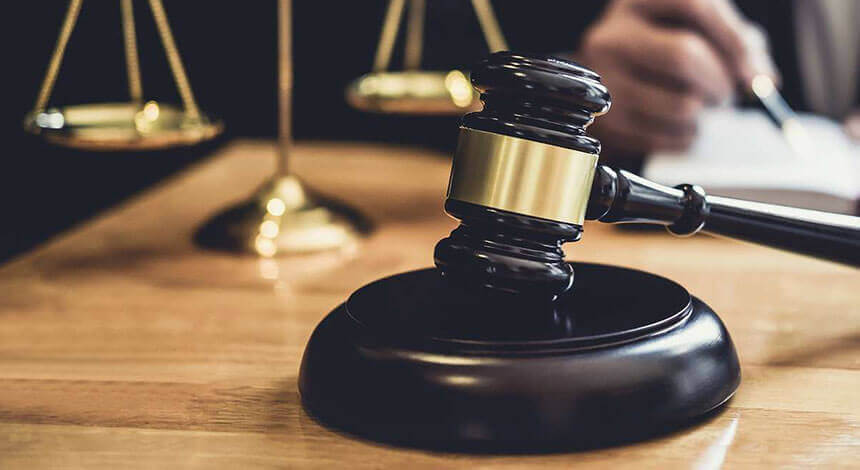- Justice Inn
- Criminal Law
- December 12, 2020
What is a Criminal Petition?
A criminal petition is a formal request filed before the court to seek relief or review in criminal cases. It allows a defendant or their lawyer to challenge certain decisions or actions taken by the police or the lower courts. The petition is typically addressed to a higher court, such as the High Court or the Supreme Court of Pakistan, and is a means of ensuring fairness, justice, and due process in criminal proceedings.
Criminal petitions serve various purposes, including:
- Challenging an arrest or detention
- Seeking bail or release from custody
- Appealing against a lower court’s decision
- Requesting a revision of a case
- Seeking a writ of habeas corpus (for unlawful detention)
- Reviewing a conviction
- For lodging of FIR
Types of Criminal Petitions in Pakistan
Criminal petitions can be categorized into several types, each serving a distinct purpose. Here are the most common types:
1. Petition for Bail
A bail petition is one of the most frequently filed criminal petitions. It requests the court to grant temporary release to an accused person pending trial. In Pakistan, a person can file a bail petition in cases where they have been arrested but have not yet been convicted of the crime. Bail can be granted either at the trial court level or on appeal in the higher courts, depending on the seriousness of the crime and other relevant factors.
2. Petition for Revision
A revision petition is filed in a higher court to challenge the decision of a lower court. This petition can be filed when the petitioner believes that the lower court made an error in law, or the sentence was unjust. The higher court will examine the case and may modify the decision, pass a new order, or even annul the original ruling if necessary.
3. Petition for Quashing of FIR
A petition for quashing an FIR is used to challenge the registration of a First Information Report (FIR) in cases where the accused believes that the FIR is false, fabricated, or lacks sufficient evidence. A quashing petition can be filed in the High Court or the Supreme Court if the accused believes the FIR is being used maliciously or has been registered without any valid legal basis.
4. Petition for Constitutional Relief (Writ Petition)
A writ petition can be filed under Article 199 of the Constitution of Pakistan. This petition is typically used to challenge actions that violate the fundamental rights of a person, such as unlawful detention, torture, or arbitrary arrest. It can be filed in the High Court and aims to provide swift judicial intervention when constitutional rights are being infringed.
5. Petition for Leave to Appeal
If a defendant or petitioner wishes to challenge a decision made by a High Court or lower court but believes that there is no clear legal basis to appeal, they can file a petition for leave to appeal to the Supreme Court. If the Supreme Court accepts the petition, it will grant leave (permission) for the appeal to proceed, allowing for a further review of the case.
6. Petition for Lodging of FIR
In some cases, individuals may find that the police refuse to register an FIR despite a clear indication of a crime being committed. Under Section 154 of the Code of Criminal Procedure (CrPC) in Pakistan, the police are legally bound to register an FIR when a cognizable offense is reported. However, if the police fail to register the FIR or dismiss the complaint without a valid reason, a petition for lodging an FIR can be filed in a higher court.


Grounds for Filing a Criminal Petition
Filing a criminal petition is not an automatic process. There must be valid legal grounds to support the petition. Some common reasons for filing a criminal petition include:
- New evidence: If new, credible evidence comes to light after the trial that could potentially change the outcome of the case, a petition can be filed to present the new evidence to the court.
- Legal errors: If there has been an error in the application of the law during the trial or investigation, such as improper procedures followed by the police or failure to consider critical legal points, a petition may be filed to correct the issue.
- Unlawful detention: A petition can be filed if a person is unlawfully detained or imprisoned without a valid charge or court order.
- Violation of rights: If the accused person’s constitutional rights or human rights are violated during the investigation or trial, a petition for relief can be sought.
- Excessive or unjust sentencing: If the sentencing seems disproportionately severe for the crime committed, a petition for a revision of sentence may be filed.
The Process of Filing a Criminal Petition in Pakistan
Filing a criminal petition involves several steps, and it is highly recommended to seek assistance from an experienced lawyer who specializes in criminal law. Here is an outline of the general procedure:
- Consultation with a Lawyer: First, the accused person or their family should consult with an experienced criminal lawyer who can assess the case and provide advice on the potential for filing a petition.
- Preparation of Petition: The lawyer will draft the petition, detailing the facts, legal grounds, and relief sought. The petition must be prepared in accordance with the rules of the relevant court.
- Submission to the Court: The petition is submitted to the appropriate court, such as the High Court, for review. Depending on the type of petition, the lawyer may also need to submit supporting documents, such as evidence or legal precedents.
- Court Hearing: Once the petition is filed, the court schedules a hearing. During the hearing, both parties (the petitioner and the respondent, which could be the state or police) present their arguments. The judge will then decide whether to grant the relief sought.
- Judgment: After considering the facts, evidence, and legal arguments, the court will pass its judgment. If the petition is granted, the requested relief (such as bail, quashing of the FIR, or revision of sentence) will be provided.
Importance of Criminal Petitions in Pakistan
Criminal petitions are crucial in ensuring that the legal process remains fair and just. They provide individuals with an opportunity to correct mistakes, prevent miscarriages of justice, and safeguard fundamental rights. Without criminal petitions, many people might find themselves unjustly convicted or subjected to unlawful detention.
- Tags:
- Criminal Law






